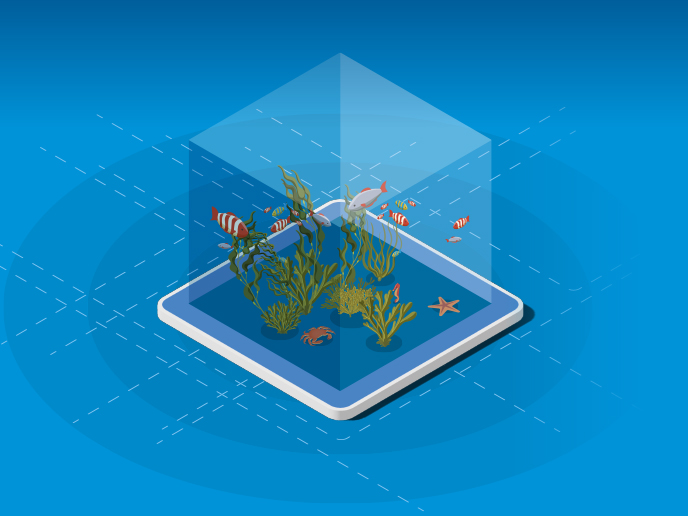II - The changing shape of Europe’s seas
We want to show how biodiversity is connected to ecosystem functioning.”
Jan Marcin Węsławski, MARBEFES project coordinator
Beneath the waves lies a complex network of life, but human activity and climate change threaten this delicate balance. Recognising the need for extensive research into diverse marine environments, Horizon Europe is funding the MARBEFES project. The project team is embarking on a 4-year journey to analyse biodiversity across 12 zones that span the full range of Europe’s seas. From Arctic to semi-tropical regions, each area holds its own significance, in terms of not only biodiversity but also cultural heritage and traditional uses by coastal communities. “Thanks to climate change, we are observing the movement of biogeographical zones from south to north,” explains project coordinator Jan Marcin Węsławski, a professor at the Institute of Oceanology of the Polish Academy of Sciences. “We want to show how biodiversity is connected to ecosystem functioning, and it is by no means a simple relationship.” The project brings together a multidisciplinary team of experts in marine biology, ecology, social science, oceanography and environmental science. The primary goal is to advance our understanding of marine biodiversity and how it affects the services that oceans provide, from blue carbon processes to fishery production. While marine biologists are studying species distributions and ecological shifts, social scientists will delve into public perceptions and attitudes towards biodiversity changes. By understanding both scientific findings and societal perspectives, MARBEFES aims to bridge the gap between knowledge and action, empowering communities to adapt to these evolving coastal environments. Through collaborative research efforts, MARBEFES studies will: expand marine knowledge, aiding conservation efforts; strengthen marine policies for sustainable use; raise public awareness and involvement in marine conservation; and promote the development of a sustainable blue economy. Through these actions, MARBEFES will provide help to preserve the EU’s marine life, while ensuring economic activities such as fishing and tourism are sustainable in the long term.
Keywords
blue carbon, ocean-climate-biodiversity nexus, climate mitigation and adaptation, natural carbon sequestration, ecosystem services, marine biodiversity, ecosystem functioning, functional ecology, maritime spatial planning, ecosystem-based approach



